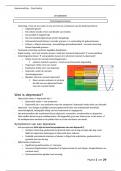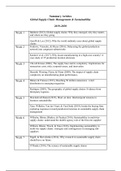Essay
The Tempest, Part B- The lovers symbolise hope for the future
- Course
- Institution
This essay covers the topic as magic as the Tempest's weakness. It was marked 15/15, A*. It covers all the necessary points for the top band marking scheme and has been edited on various occasions to use the best available information. This essay details the lovers as symbolic of hope for the...
[Show more]












